Today, The Legend of Intaglio comes to its astonishing resolution. You will be amazed, or relieved. It would behoove you, dear reader, to do a quick review of Parts 1-6 lest the in-jokes and other references to earlier scenes and characters sail over your head and be lost forever.
Or, you might have forgotten what this story is all about, since it’s dragged on so long.
Anyhow, when we left our intrepid hero, Intaglio, the animated, authorial marionette who’s “got no strings to hold him down,” he had been swallowed by a gigantic marine monster (a sea creature, not a member of the Corps) during an ill-fated attempt to escape the deceptively-named Total Freedom Island by swimming back to the Italian mainland. He swirled down into darkness, his fate uncertain.
And now, the conclusion…presented without accompanying illustrations in the electrifying three-dimensional brilliance of Your Own Imagination!
———————–
Intaglio drifted in and out of consciousness. He was in a dark, damp place, and voices echoed above him against a background of strange clacking and whooshing noises.
âI hate this. I was nearly dried out, and now Iâm soaked again.â
âOn the bright side, I think Iâm getting better at holding my breath.â
âSpeak for yourself. How is he?â
âI donât know. Ah, heâs coming around. Intaglio? Intaglio, can you hear me?â
His waterlogged wooden brain found the voice familiar, and hung onto it for dear life. âWha? Who? Papa Giuseppe?â
âYes, itâs me, my boy. Iâm so happy to see you. Iâve been searching for you ever since the University sent word that you hadnât arrived.â
âOh, Papa, Iâve been such a fool. Iâll find a job and pay back every cent of my tuition, I promise.â
âDonât worry your little wooden head over that. The Chancellor is holding your place in next yearâs class. He said it would be a shame for you to miss Rush Week, whatever that is. I thought youâd gotten lost on the way to school, or worse, but youâre safe now.â
Intaglio was wet through and barely able to move. He was lying on his back in a broad chamber shrouded in darkness. Faint illumination was provided by some phosphorescent material encrusting the walls and a small circle of light overhead. âYou call this safe? Where are we?â His eyes began to adjust, and the silhouettes hovering over him came into focus as two worried faces. âMarge, is that you?â
âYes, and I donât call this safe either. This thing wrecked my raft and swallowed me. Giuseppe was already inside.â
The old cabinetmaker nodded. âYou see, I heard a rumor from some orphans in Milan that you were searching for this awful island. I couldnât afford the price of the ferry, so I borrowed a dinghy and rowed here myself. Iâd no sooner passed the harbor breakwater when this contraption gobbled me up, dinghy and all.â
âContraption?â
âItâs a clockwork mechanism in the shape of a whale. Something like a gigantic bathtub toy. Iâm still trying to figure out how it works. The movement is simple enough…a spring-powered bellows pushes air through a series of pipes, making it move and pumping the water out whenever the jaws open. Canât for the life of me understand how it knows thereâs something nearby to eat, though.â
âItâs magic,â Intaglio murmured with awed reverence.
âYes, it has to be magic,â said Marge. âThereâs no other possible explanation.â
Giuseppe scratched his head. âBut how does it stay wound? It would take a giant the size of a house to turn the key or whatever winds it up.â
âMagic,â Intaglio and Marge whispered in unison.
âYes, well, anyhow, it seems to patrol the harbor continuously, swimming in a large circle. If someone comes to collect whatever itâs swallowed, we havenât seen them yet.â
Marge shivered. âWe need to get out of here before they show up. Iâm not going back to that island.â
âMe neither,â said Intaglio. âIâm just glad we escaped before they turned Marge into a wombat and me into a tourist attraction.â
âAnd I almost didnât make it out in time. Iâve got gray fur growing on my legs. Iâll have to shave every day if we ever get out of here.â
Intaglio struggled to sit up, but failed. âIt was too late for me. My joints are nearly frozen, and itâs getting harder to think. I wrote too many lousy pre-formatted stories. I betrayed the Writing Fairy, and now Iâll never become a real writer. Iâm nothing but a stupid, vain puppet who didnât appreciate the gift she gave me.â
Giuseppe squeezed his hand. âDonât give up hope, Intaglio. Weâll get out of this somehow, and Iâll fix you up myself. Youâll always be my son, no matter what happens.â
âMaybe we could ride out on the dinghy when the whale opens its mouth again.â
âThereâs no way to know when it will open its mouth, and besides, we tried that last time.â Marge sighed. âThe current rushing in is too strong.â
âWhat if we could make it stop swimming in circles? Is there a way to steer it? Make it go where we want?â
Giuseppe thought for a moment. âItâs possible. I think I understand the clockwork well enough to make the necessary adjustments, but we have no way to steer. We canât see what direction weâre going. â
âWhat about the round opening up there?â
âThatâs the air intake. Itâs too small to fit through, even if we could reach it.â
âUse my head.â
âWhat?â
âUse my head. Unscrew it from my body and lift it through the opening on a stick. Itâs small enough to fit.â
Giuseppe’s eyes widened in horror. “No! Your head wasnât designed to come off. Iâd have to break your neck. It might kill you.â
âIâm nearly dead already. We have to get you and Marge to safety. Just do it. Iâve taken off my arms and legs lots of times. Iâll be okay, at least until whatâs left of the life within me runs out. Thereâs not much time, and this is our only chance. You have to hurry.â
So, Giuseppe and Marge did as he asked. Marge lashed Intaglioâs severed head to the makeshift mast left over from her shattered raft and hoisted it through the hole. As Intaglio shouted instructions, Giuseppe fiddled with the air valves, gears, and cables that drove the clockwork whaleâs tail, and they returned to the mainland and the decrepit port of Lucretia in record time. A few grizzled eyebrows lifted among the stocking-capped, striped-shirted seadogs sprawled about the dock when they emerged from the whale’s gaping maw (which Giuseppe had figured out how to open on command) and tied it to a convenient mooring post. After that, it was a simple matter to catch a ride back home to Giuseppeâs little village on a passing merchantâs wagon.
But Intaglioâs life was nearly spent by the time they arrived. Giuseppe carried him into their cottage, and Marge arranged him on the sofa as best she could. He was battered and twisted, and his head didnât quite mate up with his neck.
âWow, he looks like ten miles of bad road this time.â The cricket was perched on a nearby credenza, grooming his antennae. The observation was less than helpful.
As Giuseppe knelt before the broken puppet, tears streaming from his eyes, a blue glow flooded the room, and the beautiful Writing Fairy appeared in all her glittering glory. âIntaglio,â she sang out in a voice melodious as a choir of flutes, âYou have been brave, selfless, and true. I will fulfill my promise and make you a real writer.â
He could barely manage a groan. âButâŠI betrayed you. I wroteâŠall those awful storiesâŠtrying to get rich. I didnât⊠stay trueâŠto the stories you gave me. Like I promised.â
âOh, that? Intaglio, every writer produces more failures than successes. Itâs all part of the creative process. There are many false starts, plastic characters, trite conflicts, and ill-considered plots. Sometimes you must write your worst to appreciate your best. I gave you life so that you might become a writer, and a writer you shall be.â
The Writing Fairy waved her wand over the jumble of parts that had been Intaglio. The blue light surged, and then vanished just as it became unbearable, punctuated by a puff of white smoke.
Intaglio felt an electric jolt of life surge through his body. He blinked and looked down at himself. His limbs were straight, and his joints felt like new again, but something was very wrong. âHey! Â Iâm still made of wood! You said you were going to make me a real writer!â
âAnd so you are. Did you expect me to make you human? Flesh and blood? Oh, Intaglio, you silly little puppet. Even magic canât do that. Perhaps you can write a story about it. You have a wonderful imagination, if I do say so myself. Ta, ta!â
âHold on! Wait a minute! My headâs still separated from my body!â
It was too late. The fairy had already faded away, leaving behind a wispy cloud of twinkling blue dust that set Marge to sneezing.
âSheesh. Fairies. I always thought that one was a little flaky.â The cricket hopped to the vestibule of Giuseppeâs cottage and wriggled under the door. âBack to the lettuce patch for me. See ya around, puppet boy.â
Giuseppe picked up Intaglioâs head and straightened his little alpine cap. âNow that youâre not on the brink of death, I can fix this with five minutes on the lathe and a little glue. Youâll be good as new, son.â
âThank you, Papa. WaitâŠwhatâs a lathe?â
Giuseppe ignored the question, which was probably just as well. He gave Marge a hug. âAnd what about you, young lady? Youâre welcome to stayâIâm in need of an apprentice, and woodworking pays well.â
âThank you, sir, but Iâve still got a writing dream of my own. I have a couple of cousins in Venice. Maybe I can find some inspiration there.â She turned to Intaglio. âCome visit me someday. My cousins donât know diddly about writing, and they have no sense of humor.â
âI will. Goodbye, Marge. Thanks for everything.â
Marge gave Intaglio a little kiss on the cheek and went her way, closing the door gently behind her.
Intaglio stared at the door for a few moments, then squared his shoulders and looked up at Giuseppe. âPapa, Iâm going to be your apprentice.â
âBut what about your writing?â
âEven if Iâm successful, writing doesnât pay very much, so Iâll need a day job. Besides, I know a little something about wood already, and Iâve got the best craftsman in Italy to help me.â
âVery well, but youâre still going to school next September. Any apprentice of mine must know how to conjugate his verbs, backward and forward.â
And so, they all lived happily ever after. Most of them. Intaglio earned his Bachelor of Fine Arts Degree and became both a master woodworker and a master wordsmith. He wrote about the adventures of a group of children who traveled to a wondrous land of talking animals via a magical chest-of-drawers, and gained wide acclaim, though he had to write under a pseudonym because the world beyond Northern Italy wasnât prepared to accept the idea of a living puppet. Most people assumed he was a semi-retired Professor of Medieval Literature and didnât worry much about it.
Guiseppe got the son and protĂ©gĂ© heâd always wanted, and they traded off writing his newspaper column, which gave him more time for his secret passion, fishing.
Marge eventually gave up writing altogether, and made a fortune in the cabbage market. She founded a charitable organization to encourage orphan authors and remained good friends with Intaglio and Giuseppe her entire life.
The children-turned-wombats recovered from their affliction once they stopped receiving the Coachmanâs evil potion. They went on to become remarkably humble and circumspect members of society.
The Coachman was arrested by the Carabinieri and hoist on his own petard, so to speak. He spent the remainder of his life in the Naples Zoo as âThe Worldâs Largest Wombat.â
The Sardinian gold miners took up musical theater and found it a much more satisfying pastime than reading fairy-tale mash-ups written by exploited children.
The ferryman still carries passengers between Lucretia and Total Freedom Island, which is now known as Wombat Island. Itâll cost you two gold ducats for a ride, what with the state of the economy. Hey, even a ghostly apparition has to make an after-living.
The cricket was last seen decimating the lush lettuce fields of the Po River Valley with his lovely wife and 6000 offspring.
Despite a year-long manhunt, Little Vinnie and Big Guido were never found, but itâs rumored they stowed away on a tramp steamer to Australia and founded a vanity press there.
The Writing Fairy heard about the broken carnival attraction in Sicily and brought all its puppets to life. They staged a revolution, escaped the carnival, and spread across the world, writing the most wonderful stories.
Including this one.
————————
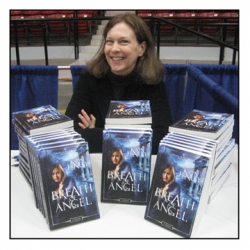 In case anyone isn’t noticing, young adult (YA) literature is hot right now, especially fantasy. Following this trend, any number of writers who published adult fiction now write for the YA market. Of late I’ve learned of several children’s book writers who are making the switch too. They may be well-known in one arena, but when they write for a new audience, they too need an introduction. Such is the case with today’s author — Karyn Henley.
In case anyone isn’t noticing, young adult (YA) literature is hot right now, especially fantasy. Following this trend, any number of writers who published adult fiction now write for the YA market. Of late I’ve learned of several children’s book writers who are making the switch too. They may be well-known in one arena, but when they write for a new audience, they too need an introduction. Such is the case with today’s author — Karyn Henley.

































 Before I launch into a reasoned, seasoned defense of speculative fiction, a little truth-in-advertising: I am a sci-fi/fantasy geek. Not the hard-core, dress-up-as-a-storm-trooper-at-Comicon type of geek. But from my earliest memories as an independent reader (that would be after the stage where my mother read Winnie the Pooh and The Odyssey to my brother and me, but before, say, grad school), I have nurtured a deep and abiding love for fictional worlds that are radically different from my own.
Before I launch into a reasoned, seasoned defense of speculative fiction, a little truth-in-advertising: I am a sci-fi/fantasy geek. Not the hard-core, dress-up-as-a-storm-trooper-at-Comicon type of geek. But from my earliest memories as an independent reader (that would be after the stage where my mother read Winnie the Pooh and The Odyssey to my brother and me, but before, say, grad school), I have nurtured a deep and abiding love for fictional worlds that are radically different from my own.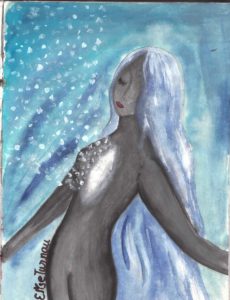

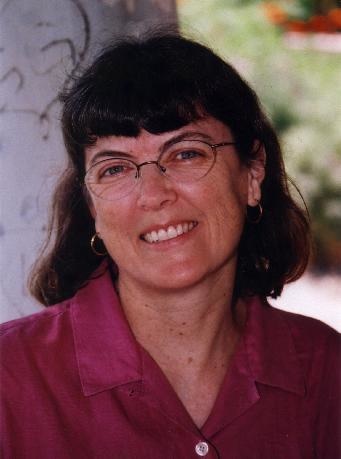
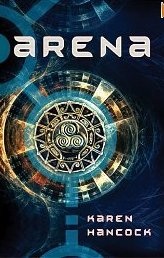




 Note: Paul, inspired by the Spirit, never condemns us being exposed to violence or swearing or false beliefs â he only condemns exposure to sexual immorality.
Note: Paul, inspired by the Spirit, never condemns us being exposed to violence or swearing or false beliefs â he only condemns exposure to sexual immorality.
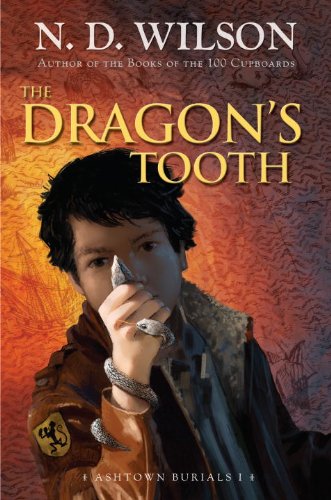
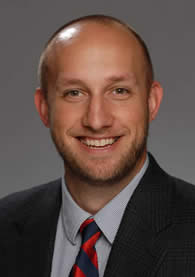





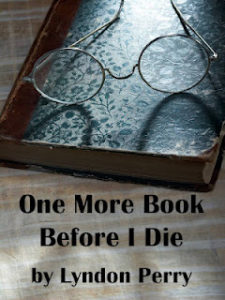


 Ever wish someone made a method for specific, temporary amnesia? That was my thought when C.S. Lewis, introducing Aslan, said ânone of the children knew who Aslan was any more than you do,â but of course I did â and wish I could read this again for the first time.
Ever wish someone made a method for specific, temporary amnesia? That was my thought when C.S. Lewis, introducing Aslan, said ânone of the children knew who Aslan was any more than you do,â but of course I did â and wish I could read this again for the first time.


